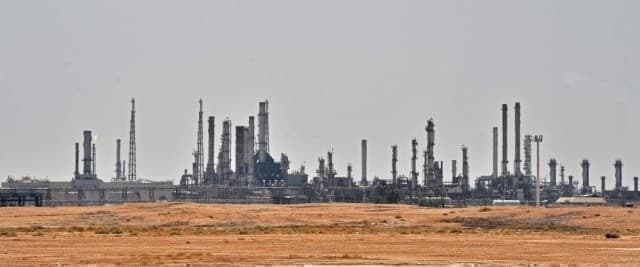The world’s top oil exporter, Saudi Arabia, wasn’t just thinking about the global oil market when it rolled over its extra production cut into April and had the members of the OPEC+ alliance keep their total output basically flat next month, with small increases for Russia and Kazakhstan. The Saudis, as well as other crude oil producers in the Middle East, were probably thinking of their budgets and current accounts as well, which need high oil prices to recover from the massive deficits and low oil revenues from last year, when the sudden oil demand and oil price collapse impacted their economies more than non-oil exporters during the pandemic.
While aiming to further tighten the oil market, the OPEC+ group and its leading OPEC members in the Arab Gulf are also plugging some of the shortfalls from 2020, with Brent oil prices nearing the $70 a barrel mark.
Higher oil prices are lowering the need for massive borrowing of the governments in the oil producers part of the Gulf Cooperation Council (GCC)—Bahrain, Kuwait, Oman, Qatar, Saudi Arabia, and the United Arab Emirates (UAE).
Last year, bond issues in the Middle East hit a record high of over $100 billion. Governments rushed to raise taxes and cut spending after the March 2020 collapse in oil prices. But these measures were insufficient to contain the damage, so producers incurred more debt to cover government spending, even if that spending was reduced compared to previous years.
Related: Oil Bulls Beware: This Optimism Is Unjustified
If oil prices remain around their current levels over the next three years, GCC oil producers would dramatically cut their need to borrow money on the debt markets, Goldman Sachs economist Farouk Soussa says in a new report, as carried by Bloomberg.
Oil averaging $65 per barrel over the next three years, all else being equal, would cut the borrowing needs to just $10 billion, compared to $270 billion, according to Goldman’s Soussa.
The current price of oil nearing $70 is good news for Saudi Arabia and basically every oil-producing nation in the world, as it would boost oil revenues that were decimated last year. Saudi Arabia, for example, was expected to see a $27.5-billion decline in oil revenues in 2020, Saudi Crown Prince Mohammed bin Salman himself said in November, admitting that the oil income was not enough to cover the Kingdom’s salaries bill.
It’s not a total surprise, then, that the Saudis were pushing for—and obtained—an extension of the current OPEC+ cuts into April, or at least until clear signs of oil demand recovery emerge.
An overtightened market would support higher oil prices, at least for a few months, until high oil prices potentially start to erode what OPEC+ still sees as a fragile global demand recovery, or until U.S. shale, especially privately held operators, become too tempted to pass on the opportunity to boost their oil production and revenues.
Related: Another Investment Bank Is Betting On $100 Oil
Signs have already started to emerge in India—the world’s third-largest oil importer—that high oil prices are slowing down the demand recovery after the crude price rally sent prices at the pump to record highs in recent weeks.
Moreover, while higher oil prices are a boon to Middle East producers’ government revenues, they could once again become the excuse for many producers in the Gulf to overspend again and not undertake deep structural reforms to really reduce the dependence of their economies on oil revenues.
Despite the Saudi Vision 2030 and continuous pledges for diversification from other oil producers in the Middle East, economies are still very much reliant on oil and the volatile nature of oil prices. The supply management policies of OPEC+, led by OPEC’s de facto leader Saudi Arabia, have sent oil prices rallying since the start of 2021, with budgets benefiting from the price spike. Yet, complacency with short-term oil revenue gains is setting the stage for more economic pain in the Middle East when oil prices enter the next bust cycle.
By Tsvetana Paraskova for Oilprice.com
More Top Reads From Oilprice.com:
- Oil Prices Drop As Traders Take Profits
- How Middle East Producers Are Pricing Their Oil
- The Global Energy Transition Could Transform African Economies


















